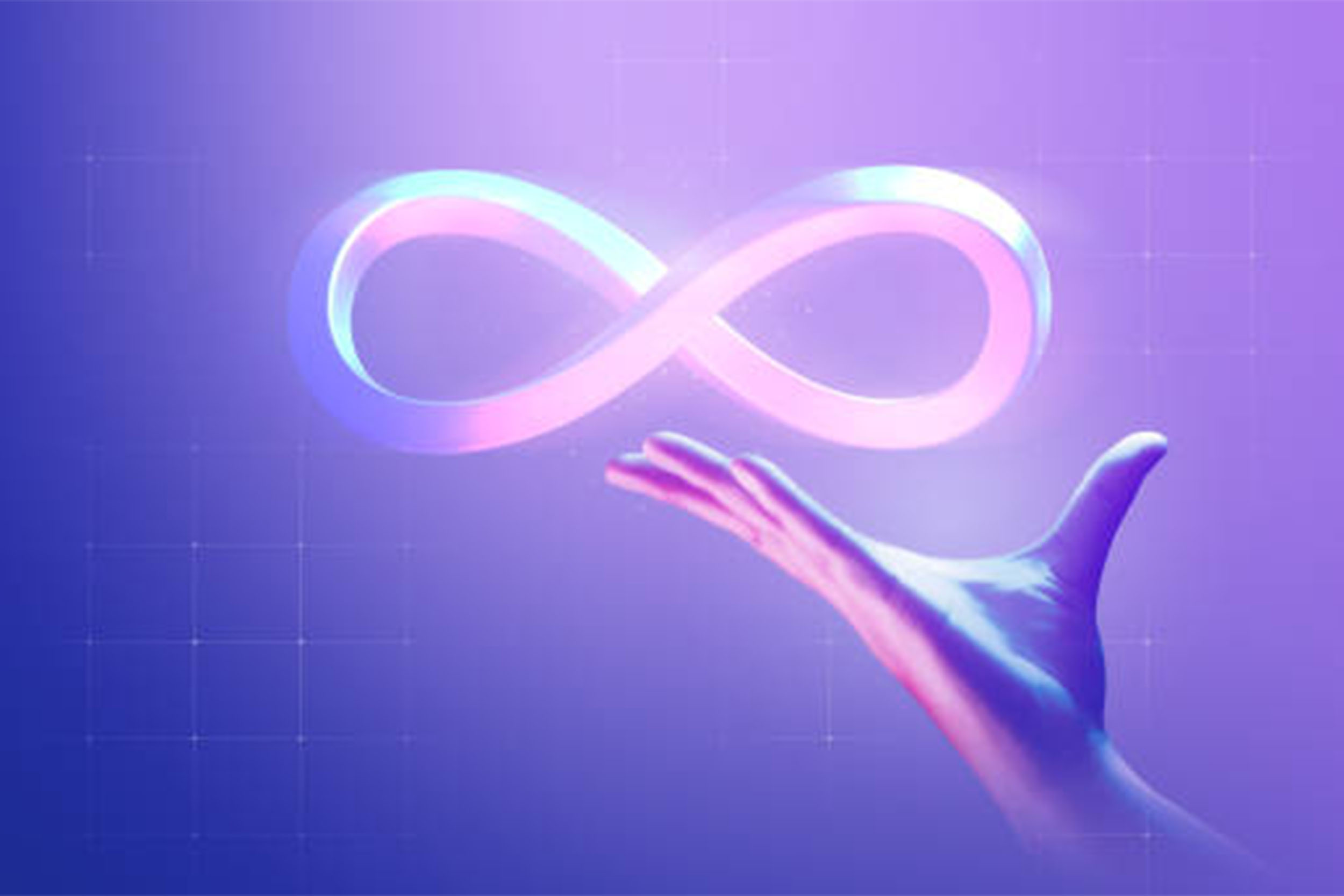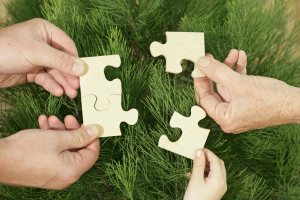Lesson #1
The Twelve Steps of OA is not a diet plan. Diets won’t work long term. If I don’t work the Steps to address the obsession of the mind, I will relapse. I need a Power greater than myself to effect change in my life.
I first joined OA over thirty-five years ago, after lots of experience going to the “pay-and-weigh” organizations. At one point, I even entered an eating disorder outpatient program. None of those things arrested my weight gain for long.
Once I found OA, I started going to meetings, but I did not work the Steps. On the advice of two 100-pounders (OA members who needed to lose and successfully lost 100 pounds (45 kg) or more), I finally got started on an abstinent food plan. I begged my Higher Power to make it clear to me that I really must give up my allergy food, wheat, and he replied with a resounding “Yes!” I began losing weight.
When friends started to notice my weight loss, I panicked and I left OA. Once back in the food, I could not imagine being abstinent again. As predicted in “The Doctor’s Opinion” in the Big Book (Alcoholics Anonymous, Fourth Edition, pp. xxv–xxxii), though I had dealt with the allergy of the body and become food neutral, I had not addressed the obsession of the mind by immersing myself in the Steps, and this led me to relapse.
I left OA for 18 years and gained a lot of weight. In fact, I was gaining at what felt like an unrelenting pace. However, I knew if I came back into OA, I would have to give up wheat, and I was unwilling to face that. When I am living in abstinence, I can’t believe I will ever go back to the food and living in guilt and shame. For the most part, I become food neutral to the foods I abstain from. However, when I lose my abstinence and am deep into the food, the opposite is true. I can’t believe I can live even for a day without my addictive foods.
Lesson #2
Keep going to meetings no matter what and pray for willingness. Don’t leave. Otherwise the disease simply progresses.
I came back into program six years ago at 280 pounds (127 kg). By then, I had had several significant health issues that were weight related. I’ve always had a relationship with a Higher Power, but I fall into the category of “praying to lose weight but not praying to be willing to surrender.” One day at church, the sermon was on the opioid crisis, and I heard all the sympathy for opioid addicts. While I too wished they would get help, just stop using, and not die, in that moment, I also turned it around on myself: I wanted the help we all wished for the opioid addicts since I was killing myself too, only in a socially acceptable way.
I knew where I needed to go and that it meant I had to change. That was when I returned to OA and took Steps One, Two, and Three.
Lesson #3
Acceptance of myself as a true compulsive overeater has been key to making the changes needed for my health. It doesn’t matter what other people can or will eat. There are certain things I can’t eat and certain emotions and situations that are triggers for me that I have to deal with in a way that is healthy for me.
I remember praying to ask that God would not make the process too hard. I defined my abstinence as being wheat free (and mostly sugar free within narrow parameters). I lost 50 pounds (22.7 kg) that first year without being on a rigid food plan, and I am maintaining that weight loss today. Gradually, I made a lot of changes to the foods I ate and how I cared for myself. I did this by listening to God’s “nudges.” Today, I eat chia-seed pudding; bake muffins with canned beans, protein powder, and flaxseed; and make my own yogurt. I get on my stationary bike almost every morning. I surrender righteous anger more readily.
Lesson #4
Steps Four through Nine are more about self-discovery, analysis, and forgiveness than wallowing in fear and resentment or making major amends to others. I’m the one I hurt most when I turn my emotions in on myself or live to please others. I needed to see that clearly and meet my 13-year-old self.
Over the years, I have worked Steps Four through Nine several different ways and learned more about myself every time. Most of my resentments and fears, however trivial, go back to wounds from my early teen years when I experienced bullying and lack of social acceptance. That is when my using food to cope with emotions really took off, and it was how I survived my reality. Ever since, my emotional default was to react to situations as a frightened, unsure 13-year-old might. OA has helped me realize I am not that 13-year-old any more, and I’ve been learning to parent the child in me and to use and trust the life skills I’ve accumulated over the years.
Lesson #5
Starting my day by spending time with my Higher Power in Step Eleven opens me up to that power source of care, support and change. I have to do it just like I brush my teeth or commit to other self-care. I don’t have to want to do it.
When I began the practice of living in Steps Ten, Eleven, and Twelve, I began to see that this was a commitment to my Higher Power, to myself, and to my fellows in the program—in that order. And I don’t have to feel like practicing Steps Ten, Eleven, and Twelve, I just have to do them. So most mornings, I begin by jumping on my stationary bike and reading my morning meditation and praying. By doing this, even when I’m not “feeling it,” I open up the door to communication with my Higher Power. If I don’t plug in, I’m not on the receiving end of my power cable.
Lesson #6
End each day with a daily review. Make a commitment to do this, but keep it simple so it is not overly burdensome. Set an alarm.
At night, I email my food and my Tenth Step to my sponsor. This is when I review my day and examine my conscience. My format is simple and has three parts: First, I note down what and when I ate, usually under the headings of breakfast, lunch, snack, and dinner. Second, under the heading Program, I note down what Tools I used and actions I took specifically for my OA program. Having nothing or very little to note down is my first alert that I may be moving into relapse. Third, under the heading Emotions, I note down any strong positive or negative emotions and review how I dealt with them. From that, it is usually clear what actions I need to take to a) not be ruled by my emotions and b) fix my relationships with others. I compose my Tenth Step inventory on my phone since it is always with me. I have learned to set an alarm at 10 p.m. (22:00) daily as a reminder. This practice is the catalyst for much of my change.
Lesson #7
Service work helps me engage with others and that makes me experience the world in a new, healthier way.
I have a standing commitment at a home meeting, so I show up and get real with people who have come to know me. I talk to my sponsor and sponsees and am open to other service work. These Twelfth Step commitments keep me actively engaged in the OA program and keep me coming back even when I don’t feel like it. I’m also opening myself up to my Higher Power, to insights from others about how to navigate life, and to the pleasure found in interacting with and helping others. And, I have to walk the walk to talk the talk.
Lesson #8
These are my thirteen signs that I am on a path to relapse, roughly in order, with food issues coming after some of the other behaviors:
- I stop doing my morning prayer and meditation.
- I stop examining my day and reviewing what I ate.
- I skip meetings or calls with my sponsor or sponsees.
- I switch compulsions. I isolate by playing games on my phone or computer, surfing for hours, shopping, watching TV, or reading excessively and compulsively.
- I start to make exceptions to the foods I abstain from and fudge on writing down what I ate.
- I forget to ask my Higher Power, my family, and my OA fellows for help, support, and their insights.
- I start to resent people, places and things; I wallow in justified anger; or I decide to hand out constructive criticism to fix others, forgetting that acceptance of all things as they are is the key to my own happiness.
- I don’t get enough sleep, so I want to compensate for being tired with food.
- I don’t drink enough water and mistake thirst for hunger.
- I go beyond five hours without a meal or snack during the day so my blood sugar swings, my brain shouts at me to eat, and I lose my sense of choice.
- I buy yellow-light foods to put in my panty or freezer with lame excuses like “because they were on sale” or “I might need them when company comes,” thus setting the scene for a binge in an emotionally needy moment.
- I don’t make a game plan for social situations, such as planning ahead so I don’t arrive hungry or taking an abstinent dish to share.
- I decide that free food, holidays, travel, and social situations are simply too special to forego “treats.” I forget that I can live just fine without them and that many other people chose to do so too. I ignore that they are poison to me. I slide into the seductive lie that I can and deserve to eat “like other people.”
—Jean C., USA





